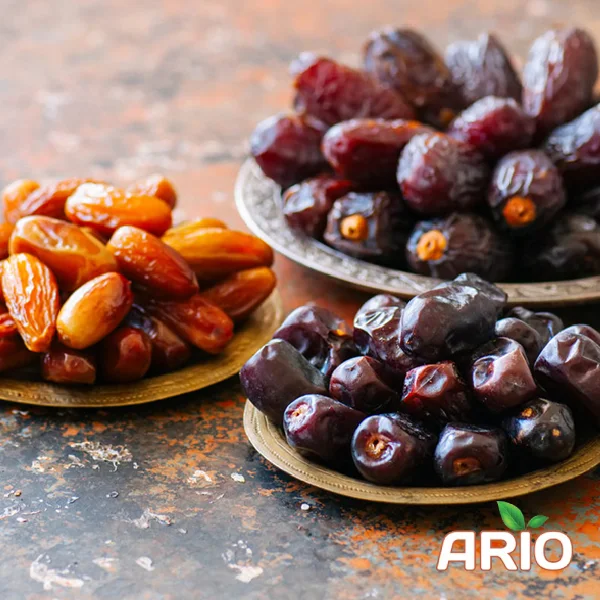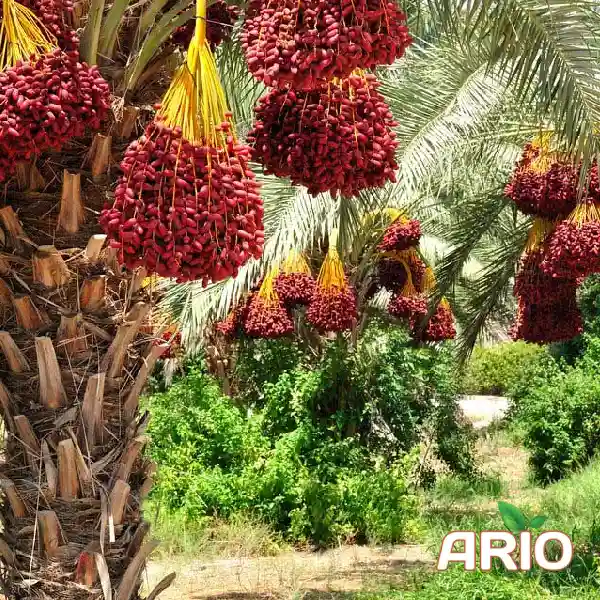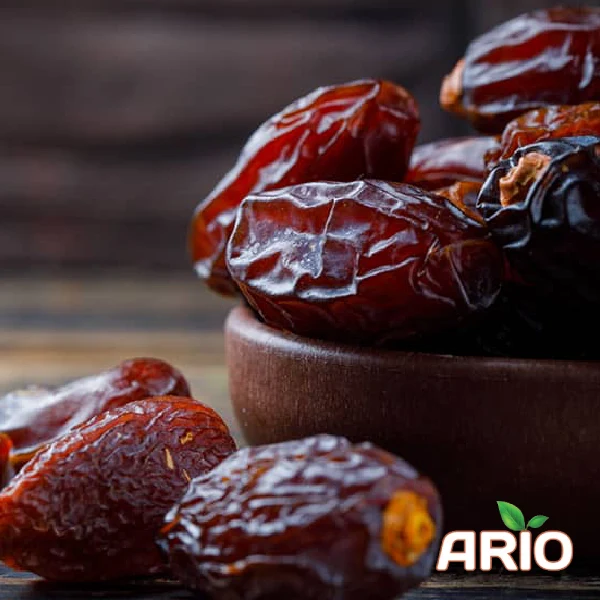
Dates
Dates
Can one fruit serve as a powerful health booster, a staple of global trade, and a luxury delicacy all at once? Dates do exactly that. Rich in natural sugars, essential minerals, and dietary fiber, dates have been cultivated for thousands of years across arid regions and today stand as one of the most sought-after products in international markets.
Introduction: Dates — A Powerful Superfruit in Global Trade
Iran, as one of the world’s largest producers and exporters of dates, offers a vast variety of high-quality fruits grown in ideal climatic conditions. Whether you’re a wholesaler, distributor, or procurement officer, this guide will help you confidently navigate the world of date sourcing—from identifying premium varieties to understanding logistics, certifications, and shelf life.
Why Dates Are a Nutritional and Economic Powerhouse
Dates are not only delicious but incredibly nutritious:
- High in potassium: Up to 25% more than bananas.
- Cholesterol-free, fat-free, and sodium-free.
- Rich in fiber: Supports digestion and gut health.
- Loaded with antioxidants and essential minerals: Including magnesium and calcium.
- Natural energy booster: Perfect for athletes and health-conscious consumers.
Thanks to these benefits, dates are commonly used in health food products, bakery items, breakfast cereals, and sports nutrition lines.

Top Date-Producing Regions in Iran
Iran’s geographical diversity and warm climate make it a prime producer of over 400 date varieties, many of which are globally recognized. Major producing provinces include:
- Hormozgan (Top producer with 29.7% productivity)
- Kerman, Khuzestan, Bushehr, and Fars
- Cultivation spans 14 provinces including Kermanshah, South Khorasan, Isfahan, and Semnan
With over 218,000 hectares under cultivation and annual production reaching 900,000 metric tons, Iran remains a leading force in the global date market.
Key Varieties of Dates for Bulk Buyers
Here’s an overview of the most commercially important Iranian date varieties:
1. Mazafati (Kimia) Dates
Type: Fresh, soft, black-colored
Moisture: 18–25%
Shelf Life: 18–24 months at 4°C
Region: Kerman
Packaging: 600g, 5kg boxes
Ideal for: Direct consumption, stuffed dates
2. Sayer (Sair) Dates
Type: Semi-dry, dark brown
Moisture: <15%
Shelf Life: 18 months at room temperature (under interim fumigation)
Region: Khuzestan
Grades: Super Select to FAQ and Industrial
Packaging: 5kg, 10kg
Ideal for: Processing, direct use
3. Piarom Dates
Type: Semi-dry, dark brown, sweet
Moisture: <16%
Shelf Life: 18 months
Region: Hormozgan
Packaging: 5kg, 10kg
Ideal for: Premium retail, stuffing
4. Rabbi Dates
Type: Semi-dry, black, sweet
Moisture: <15%
Shelf Life: 18 months
Region: Sistan & Baluchistan
Packaging: 5kg, 10kg
5. Zahedi Dates
Type: Semi-dry, yellow-gold to light brown
Moisture: <14%
Shelf Life: 18 months
Region: Fars, Khuzestan
Usage: High-sugar industrial purposes, direct consumption
6. Kabkab Dates
Type: Wet to semi-dry, soft, dark brown
Moisture: <14%
Shelf Life: 12–18 months
Region: Fars

Date Derivatives for Industrial Buyers
In addition to whole dates, Iran produces a range of value-added products:
- Date Paste: 100% natural, ideal for confectionery and energy bars
- Chopped Dates: Used in snacks, cereals, and baking (rolled in rice flour)
- Date Syrup/Juice: Natural sweetener, high in antioxidants
- Industrial Dates: Lower-grade Sayer dates, used in food manufacturing
Harvesting and Processing in Iran
- Harvesting: Done manually due to traditional orchard structures
- Processing Includes: Cleaning, drying, moisturizing, grading, and packaging
- Storage: Rapid expansion in cold storage facilities, although some traditional stores still exist
- Packaging Services: Companies like Ario Date Co offer custom carton production and branding services for bulk buyers
Organic and Certified Dates for Export Markets
Ario Date Co and similar suppliers provide certified organic dates grown without pesticides or preservatives. They comply with global food safety standards like ISO, HACCP, and Organic certifications, ensuring high traceability and product integrity.
Sourcing and Procurement Tips for Bulk Buyers
1. Choose the Right Origin
Iran, Saudi Arabia, Tunisia, and Algeria are top exporters. Iranian dates stand out for their variety and flavor depth.
2. Check Certifications
Always verify Organic, ISO, and HACCP certifications. FDA compliance is key for US-bound products.
3. Understand Moisture Content
Soft dates (e.g., Mazafati): Require refrigeration
Semi-dry dates (e.g., Sayer, Zahidi): Ideal for room temp shipping and long storage
4. Packaging and MOQ
Bulk exporters usually require minimum orders. Custom printed cartons and bulk packaging (5kg–10kg) are standard.
5. Plan Around Harvest Seasons
Iranian dates are typically harvested from August to October. Align your sourcing calendar accordingly for better pricing and availability.
Frequently Asked Questions (FAQ)
1. What are the best dates for bulk export?
Medjool and Deglet Noor are among the most exported due to their popularity and stability.
2. How long do dates last in storage?
Dry dates can last up to a year if stored in cool, dry conditions. Soft dates may last 6 months with refrigeration.
3. Are dates suitable for diabetics?
Dates have natural sugars but a low glycemic index. Moderation is key for diabetics.
4. What certifications should I look for in a supplier?
ISO, HACCP, Organic, and FDA compliance (for US importers) are standard.
5. What is the typical moisture content in dates?
Ranges from 15% in dry dates to over 30% in soft varieties like Medjool.
6. Do dates require fumigation for export?
Many importing countries require pest control treatments depending on origin.
